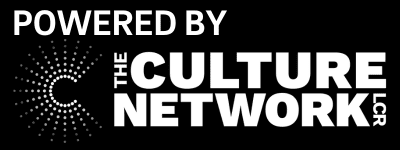
We’ve put together some of the best arts and culture TED talks to leave you feeling inspired and creative.
1. Give yourself permission to be creative – Ethan Hawke
Reflecting on moments that shaped his life, actor Ethan Hawke examines how courageous expression promotes healing and connection with one another — and invites you to discover your own unabashed creativity. We recommend pairing this TED talk with a read of Creative Fatigue: The dangers of the productivity warrior narrative by Liverpool artist Becky Downing.
2. Why do I make art? To build time capsules for my heritage – Kayla Briët
Kayla Briët creates art that explores identity and self-discovery — and the fear that her culture may someday be forgotten. She shares how she found her creative voice and reclaimed the stories of her Dutch-Indonesian, Chinese and Native American heritage by infusing them into film and music time capsules.
3. How drawing can set you free – Shantell Martin
Shantell Martin shares how she found freedom and a new perspective through art. See how drawing can connect your hand to your heart and deepen your connection with the world.
4. How we experience time and memory through art – Sarah Sze
Explore how we give meaning to objects in this beautiful tour of Sarah Sze’s experiential, multimedia art.
5. How film transforms the way we see the world – Sharmeen Obaid-Chinoy
Documentarian and TED Fellow Sharmeen Obaid-Chinoy uses her Oscar-winning film to fight violence against women, turning her camera on the tradition of honor killings in Pakistan. In a stirring talk, she shares how she took her film on the road in a mobile cinema, visiting small towns and villages across Pakistan — and shifting the dynamics between women, men and society, one screening at a time.
6. Can art amend history? – Titus Kaphar
Artist Titus Kaphar makes paintings and sculptures that wrestle with the struggles of the past while speaking to the diversity and advances of the present. In an unforgettable live workshop, Kaphar takes a brush full of white paint to a replica of a 17th-century Frans Hals painting, obscuring parts of the composition and bringing its hidden story into view. There’s a narrative coded in art like this, Kaphar says. What happens when we shift our focus and confront unspoken truths?
7. How craving attention makes you less creative – Joseph Gordon-Levitt
As social media exploded over the past decade, Joseph Gordon-Levitt got addicted like the rest of us — trying to gain followers and likes only to be left feeling inadequate and less creative. In a refreshingly honest talk, he explores how the attention-driven model of big tech companies impacts our creativity — and shares a more powerful feeling than getting attention: paying attention.
8. Public art that turns cities into playgrounds of the imagination – Helen Marriage
Visual artist Helen Marriage stages astonishing, large-scale public art events that expand the boundaries of what’s possible. In this visual tour of her work, she tells the story of three cities she transformed into playgrounds of the imagination — picture London with a giant mechanical elephant marching through it — and shows what happens when people stop to marvel and experience a moment together.
9. Life is your talents discovered – Sir Ken Robinson
Sir Ken Robinson argues that talent is often buried and that we need to search for it. In fact, the foundation of wisdom may be the willingness to go and look for it.
10. How to build a thriving music scene in your city – Elizabeth Cawein
How does a city become known as a “music city”? Publicist Elizabeth Cawein explains how thriving music scenes make cities healthier and happier and shares ideas for bolstering your local music scene — and showing off your city’s talent to the world.
11. How a strong creative industry helps economies thrive – Mehret Mandefro
Mehret Mandefro says the creative sector has the power to grow economies — while also helping safeguard democracy. In this captivating talk, she shares a behind-the-scenes look at how she’s putting culture back on the economic agenda in Ethiopia, and explains why other countries would benefit from doing the same.

